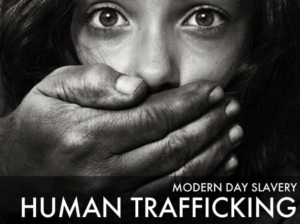Seldom can we mitigate bad problems with solutions that work and are handed us on a platter. But we can do that in Virginia in the case of human trafficking.
The Department of Justice defines human trafficking as follows:
Human trafficking, also known as trafficking in persons, is a crime that involves compelling or coercing a person to provide labor or services, or to engage in commercial sex acts. The coercion can be subtle or overt, physical or psychological. Exploitation of a minor for commercial sex is human trafficking, regardless of whether any form of force, fraud, or coercion was used.
The last time we had good numbers on arrests only, there were 5,000 arrests related to suspected trafficking in Virginia between 2012 and 2019. Yet even now, the Commonwealth’s Trafficking Coordinator wrote at the end of last year that nearly all of the charges have been brought against buyers and sellers of prostitution, not traffickers.
The Uniform Law Commission (ULC), established in 1892, provides states with non-partisan legislation that brings clarity and stability to critical areas of state statutory law.
It has since 2013 offered the Uniform Act on the Prevention of and Remedies for Human Trafficking (Uniform Act). This act has been adopted by at least nine states and the U.S. Virgin Islands.
While Governor Youngkin signed a spate of new laws in June of this year, a big improvement, Virginia laws on human trafficking remain scattered all over the Code of Virginia. The only Virginia law against it is § 18.2-355. The laws remain woefully inadequate.
The Uniform Act is ready to submit. Both parties in the General Assembly should sponsor it and adopt it unanimously in the upcoming session.
I do not know why Virginia has not moved forward with the Uniform Act.
If I were to guess, the reason is inertia.
The Uniform Act penalizes both traffickers and patrons and protects the victims in a single integrated law.
The offenses in the Uniform Act are:
- Trafficking an individual
- Forced labor
- Sexual servitude
- Patronizing a victim of sexual servitude
- Patronizing a minor for commercial sexual activity
- Business entity liability
- Aggravating circumstance
The penalties, in addition to incarceration for the offenses listed, can include restitution and forfeiture. It provides for an affirmative defense of the victim against charges of prostitution.
There is a long list of other victim protection measures, including eligibility for benefits or services. The only benefit Virginia offers to the victims of trafficking is in-state tuition, and that just went into effect this year.
Here is the Uniform Act. Look at that compared to Code of Virginia § 18.2-355 and you will see that the Virginia law is woefully lacking in specificity.
The Virginia law uses the term “against his or her will” without specifying what that means. The Uniform Act provides a list of specific violations that would seem far easier to prove, and thus to prosecute.
The Virginia DCJS Trafficking Coordinator’s Annual Report from 2021 has additional recommendations that require legislation.
I hope that legislators from both parties will carry the Uniform Act as amended by those recommendations.
It is ready to submit, and it is the right thing to do.
Updated Nov 2 at 17:385



